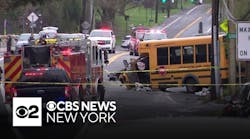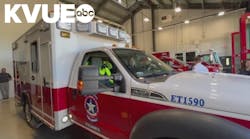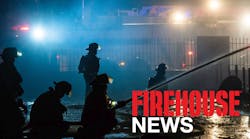How many of you have a know-it-all within your circle of acquaintances? Sad to say, you probably all can answer yes to this question. Rare indeed is the person among you who is unfamiliar with at least one person whose belief in their individual supremacy is legendary (at least in their own minds). These people can be a real pain in the butt.
Let me share one of life's great truths with you. The longer I live these less I believe that I really know. While it might be that I am just starting to forget things, in reality it seems that there is so much more to know in the world today than any one amongst can ever comprehend. Let me share a story to make my point.
I can recall a relative making an important point with me about this many years. She was a cousin by marriage and a native of Scotland. This event happened during my senior year in high school. We were at a family gathering and for some reason the conversation turned to school work. At some point I began to bemoan all of the things about U.S. History that I was having trouble committing to memory.
My cousin's wife chuckled a bit and said that I really should not complain so much. She noted that I only had less than 200 years of history with which to contend. She went on to point out that during her school days she had to deal with more than 900 years of Scottish and British history. What was my problem with handling a mere 190, or so, years of history? I can still recall her words more than 40 years later.
Let me stress that ignorance of history merely means that you do not know something about the past. There are other areas of ignorance where the consequences of that missing knowledge can be quite negative. It is my contention that in the fire service, ignorance can become the first step in a deadly scenario: one where at the very least pain and suffering can be a by-product. I was reminded of this a few weeks ago at a seemingly innocuous call for assistance during a thunderstorm.
Let me start this discussion by owning up to the fact that, like far too many firefighters, my knowledge of electricity is not all that great. Electricity is good when controlled and bad when uncontrolled. Just to let you know, I have attended many indoctrination sessions over the years that were provided by the Public Service Company up in Newark and the Jersey Central Power and Light company here at home in Monmouth County.
They spoke of amps, volts, and watts. They spoke of current and explained the different voltages, as well as the placement of different strengths of wires on the poles. I have also read about operations involving electricity in the fire service texts and media. As many times as I have attended these lessons and read the texts, and magazine, I must say that I am still a little concerned about what electricity can do to my associates and I if we screw up. I am also concerned about what I am able to recall when I need to.
Perhaps I am more sensitive than most, owing to the fact that a dear friend of mine was killed in the line of duty back in 1994. Firefighter Mike Delane of Rescue Company One in Newark was electrocuted while helping a young, rookie firefighter down from the roof of a burning building. However, I guess that there are some things which just do not click within my brain.
My personal defense against this area of weakness in my knowledge base is caution. Anyway, during a recent series of storms, our fire company here in Adelphia was dispatched to the scene of an incident where wires were reported as burning in a tree near the far end of our district. Owing to the great number of calls that evening, I ended up as the incident commander for this one.
As we approached the scene, I parked at what I thought was a safe distance, established command, and sent one of the guys up to capture the pole number, so that we could report it to the power company. Once the fellow got the number he came back to the rig. We noted the number, pulled back from the pole and reported it to the township police dispatch center.
Owing to the fact that it was in a location away from the homes in the area, and that there was really nothing we could do, I decided to leave the scene in the control of the police officer and return to quarters. No sooner than the words about not being able to do anything, and terminating command had left my mouth, there was an explosion: an explosion with a bright blue flash.
My first thought was to put more distance between the pole and us. My next thought was to block the nearby intersection. As I was backing the pumper towards the intersection about 200 feet fact from the pole, there were two more really spectacular explosions in short order. These convinced me that my idea of putting space between the pole and us was the right move.
Since it seemed as though we were going to be needed on standby duty for quite sometime, I angled the pumper across the roadway and directed members of our crew to lay out a line of flares and set up a temporary traffic control point. The fire police unit was then requested so that we could set up a highway control point. Shortly thereafter a second township police officer arrived, and assumed our traffic control point. We then went available, ordered up the fire police, and took in the next response which came only seconds after going available.
Once again I felt a gnawing feeling of ignorance during the run I have just described. However it is possible that knowing I felt uncomfortable about my ignorance turned out to be my defense mechanism against doing something really stupid. Think about it. What can the average firefighter do other than stay the heck away from these wires and transformers and then keep other people from harming themselves.
Maybe, in addition to my feelings of ignorance, I have developed a healthy respect for the dangers inherent in electricity. Perhaps that respect is the strong positive which I have developed in response to the acknowledged negative which I term as ignorance. Maybe my ignorance here is a good thing.
Let me add a word of caution here. Were there any indication that a crowd of bystanders would form and push forward toward the electrical problem, we would have created and maintained a tight cordon around the area of the emergency. This is something my buddies and I have often done in the past. We kept everyone away, including ourselves.
Over the years I have watched the folks from the power company working to correct an electrical problem to which I have responded. I took comfort in their arrival. They had the skills and training necessary to handle the task at hand. Their calm and capable actions brought great comfort to my associates and me.
Perhaps there is an upside to this concept of ignorance. How, you might ask, can ignorance of something be a positive factor? Let me suggest that it can be an aid to avoiding stupidity. I have for many years now used a simple phrase to describe the effects of the phenomena of operational ignorance. I learned it over 20 years ago from my buddy Captain Jerry Grey, now retired from the San Francisco Fire Department.
"If you don't know: You don't go!" It is as simple as that. Each of us is good at some things, and not good at others. Some people might label this as staying within your comfort zone. In any case, it is my suggestion that you avoid doing things for which you have not been trained.
Do not get me wrong. I am not saying it is good to be ignorant, although that would justify the actions of far too many fire people in the world every day.
What I am saying is that an acknowledgement of ignorance can be the first stop on a journey to enlightenment.
None of us can know it all, but we sure as heck can gather together a variety of people who know a variety of things. We can then create a symbiotic relationship that is much stronger than any one individual member. This is a case where there may well be strength in numbers: numbers of brains that is.
Let me close by going a few steps beyond my buddy Jerry Grey's warning. "If you don't know, do not go: at least not until you have gone to the books, gone to school, and gone to the people who do know."





